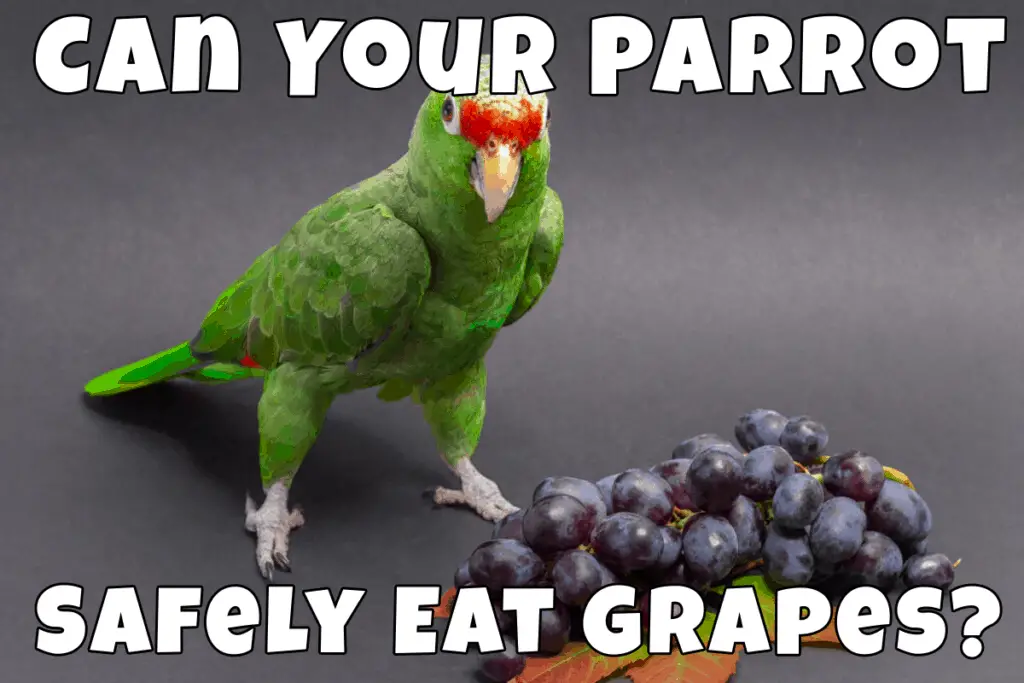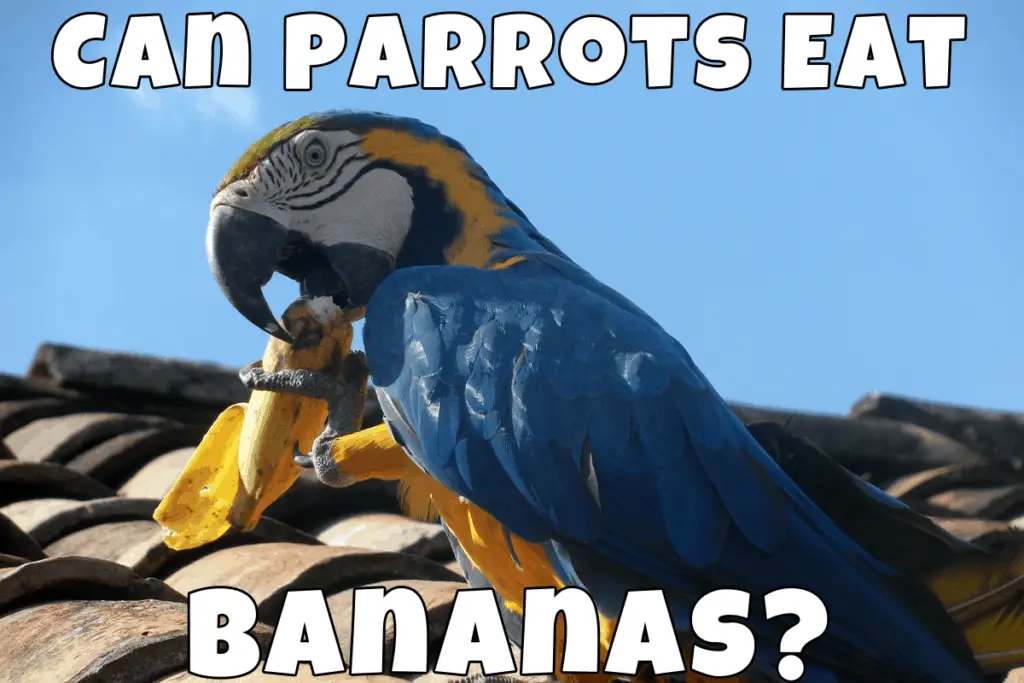We have already said that fresh vegetables and fruits must be present in the diet of your parrot. It is very important for your pet’s balanced nutrition, so fresh vegetables and fruits should make up about 20-25% of your bird’s daily menu.
You should carefully understand what exactly your parrot can eat because some food can be toxic and harm your pet bird. In order for your parrot to stay healthy and lead an active lifestyle, you need to understand how to build their menu in detail. So, continuing to discuss vegetables and fruits for your parrot, we have a new question. Can parrots eat blueberries?
In short, I can say yes. Blueberries are a great choice for your parrot’s diet, and moreover, it is one of the most beneficial berries for them. However, as with any food, there are several rules and restrictions regarding the quantity and quality of these berries. You shouldn’t make blueberries the main food for your parrot’s daily diet. Find the right nutrition for your parrot, which includes a variety of fruits and vegetables, as well as grains, seeds, and nuts.
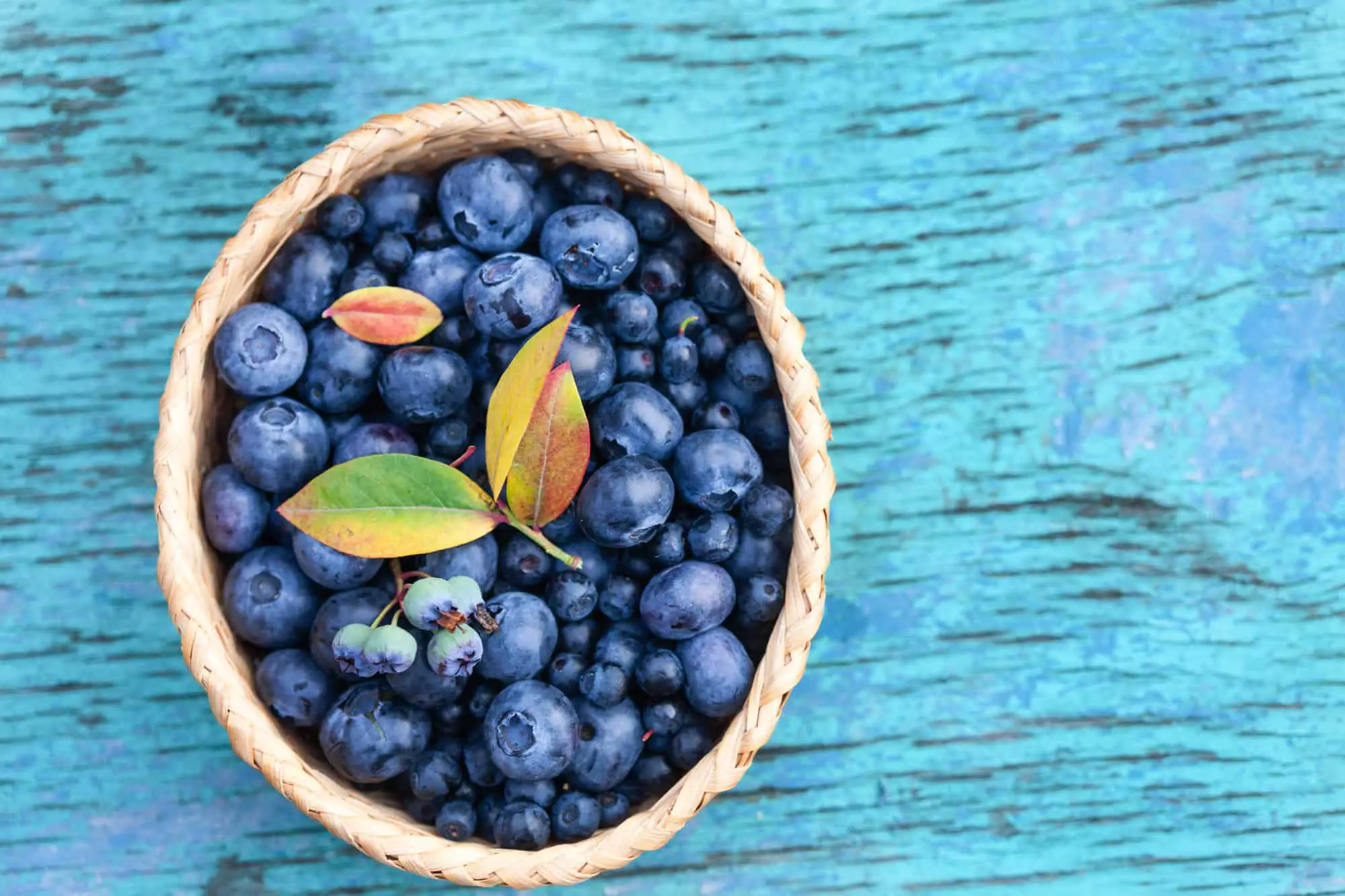
It would seem that everything is clear, and parrots can eat blueberries. However, many other questions arise that also need to be discussed. Can your parrot eat dried blueberries? What is the nutritional value of these berries for your bird? Do you need to peel blueberries before feeding your parrot? What are the benefits of blueberries for a parrot? There are a lot of questions, but I have all the answers! Let’s deal with it all together!
Are Parrots Safe for Families With Babies?
What is the Nutritional Value of Blueberries for Parrots?
You may know that blueberries are considered a superfood for a healthy human diet. The same applies to the menu of parrots – blueberries are very nutritious and, at the same time, quite low in calories. It contains a variety of nutrients to enhance the health of your bird. Let’s take a closer look at the blueberry elements.
Vitamin A
This vitamin is one of the most important elements in your parrot’s diet. First of all, it ensures good growth and development of the whole body of the bird. Secondly, it strengthens the immune system and helps the bird to resist various viruses and infections.
Vitamin A also contributes to healthy vision and maintains the bright pigmentation of the bird (especially the red and yellow shades of the feathers). Parrots often don’t get enough vitamin A, so blueberries are a great source for your bird.
Vitamin B6
It is the main source of energy for your parrot and helps to turn any food they eat into energy. In addition, vitamin B6 contributes to the proper development of heart muscle, prevents cardiovascular disease, and maintains brain health. This vitamin plays an important role in metabolism and is essential for the normal functioning of the nervous system.
Vitamin C
Vitamin C is a key element for the health of many living creatures. Parrots are no exception, and this vitamin should be present in their diet every day. It is essential for the overall health of the bird and has many different functions.
The main ones are strengthening the immune system, healing minor wounds and injuries, and cleansing the bird’s body of toxins and heavy metals. With a severe vitamin C deficiency, your parrot may begin to pluck feathers and behave aggressively towards its own body.
Potassium
It is one of the most important electrolytes for the health of any bird. It affects the general health of your parrot, and you need to monitor its presence in your pet’s diet. Potassium influences healthy salt metabolism, supports the cardiovascular system, and regulates fluid excretion. It also aids in the growth of healthy muscle mass in parrots.
Magnesium
Magnesium is also a very important mineral for your parrot. It supports the health of the nervous system and the emotional development of the bird. It also supports calcium metabolism and helps build strong bones and beaks. Magnesium promotes the beauty of feathers and healthy skin.
Can Parrots Eat Goji Berries Safely? Look At These Benefits
Antioxidants
Elements that are dangerous to cells, called free radicals, pose a threat to humans’ and birds’ health. An excess of free radicals can provoke various degenerative diseases and irreversible damage to the cells of the body. Therefore, it is important to fight them with a healthy diet full of antioxidants.
Usually, a good quality healthy diet with the right balance of nutrients and antioxidants helps your parrot struggle with free radicals. Blueberries are high in antioxidants and are one of the largest sources of all vegetables and fruits. Therefore, be sure to add them to your parrot’s diet regularly.
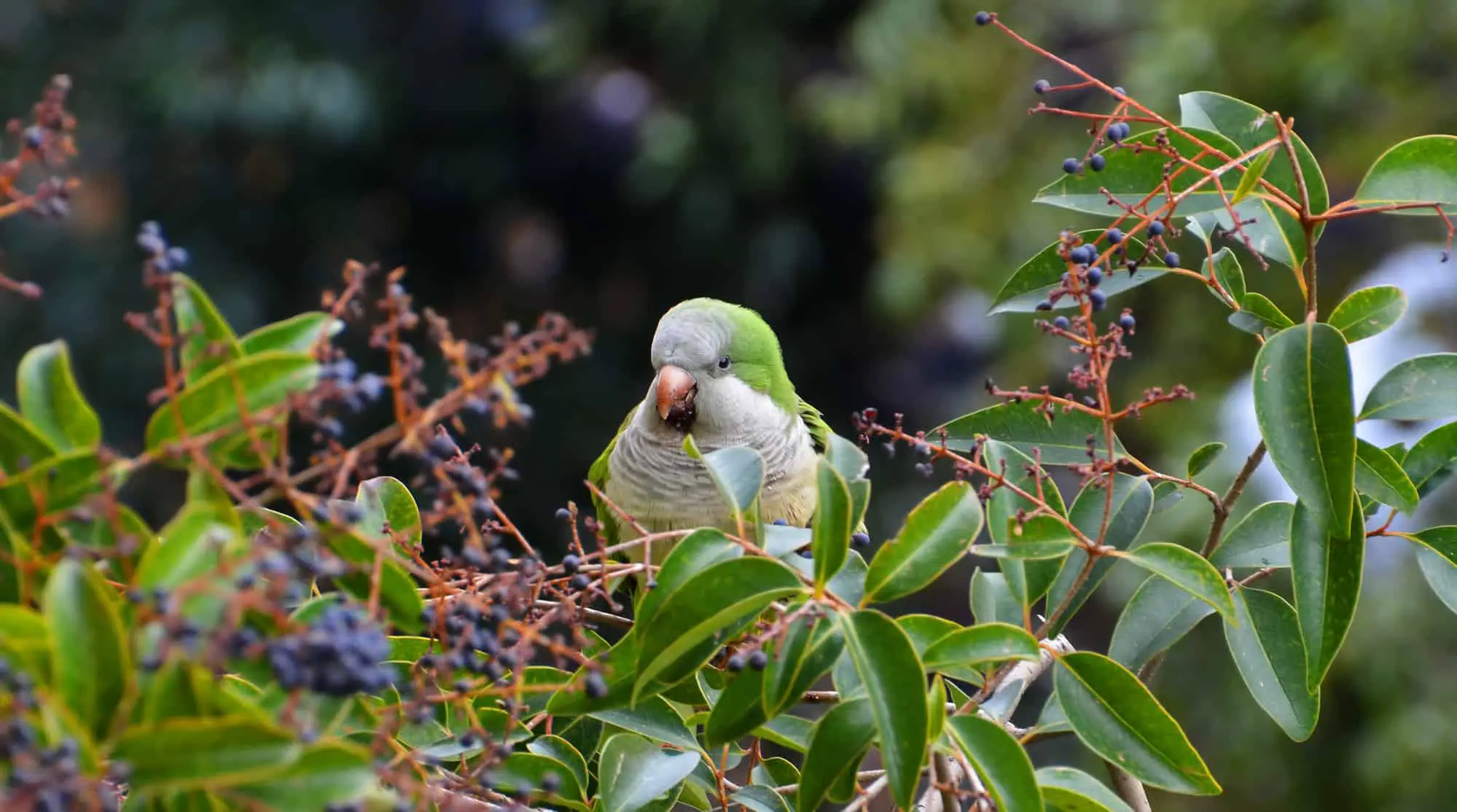
In what Forms can Parrots eat Blueberries?
We have figured out that blueberries are very useful for parrots. Let’s discuss the details. How exactly should you feed your parrot with blueberries?
Can Parrots Eat Dried Blueberries?
Yes, parrots can eat dried blueberries safely. And while fresh berries are always preferable to dried ones, you can safely pamper your parrot with dried blueberries. You should understand that when dried, berries and fruits lose their volume and shrink. Therefore, your parrot will need a large serving to feel satiety.
Dried blueberries retain all the beneficial properties of fresh berries, but they contain a large amount of sugar. Therefore, if your parrot eats a full serving, they will get too many carbohydrates in the form of fructose. It also means too many calories, so your parrot should not eat a full serving of dried blueberries. Let it be more of a treat than a regular meal.
If you want to pamper your parrot with dried berries, I don’t recommend buying them in the store. Such berries can contain flavor enhancers, preservatives, and added sugars. In fact, making dried blueberries at home is very quick and easy with a dehydrator.
So, I can summarize that your parrot can eat natural dried blueberries in small amounts as a sweet treat.
Can Parrots Eat Dried Fruit Safely? What Types to Avoid?
Can a Parrot Drink Blueberry Juice?
Yes, blueberry juice will definitely be good for your parrot. But as with dried blueberries, you only need to give your parrot natural blueberry juice. It is easy to make it at home. So you can be sure that it is free of sugar, preservatives, and flavor enhancers.
You will need a lot of berries to make a serving of blueberry juice, but a parrot doesn’t need a lot of juice. With a small juicer, you can do this quickly and easily. When you make blueberry juice, you can invite your parrot to drink it or add it to the meal to enhance the flavor or sweeten the food.
How Often Can You Feed Your Parrot with Blueberries?
As I have said before, your parrot’s healthy diet should contain 20-25% fresh vegetables, fruits, and berries. However, your bird’s diet should be varied and contain not just berries. You should mix different combinations of fruits and berries to ensure that your bird gets all the vitamins and minerals available. Earlier, I have told you about the beneficial substances in pineapples or the advantages of watermelons for your parrot’s diet. Knowing the details of each fruit and understanding how to combine them will provide your bird with a complete, balanced diet.
So, we can conclude that for your parrot to get all the benefits of blueberries, it is enough to eat berries two or three times a week. The rest of the time, feed them any other fruit to balance their diet.
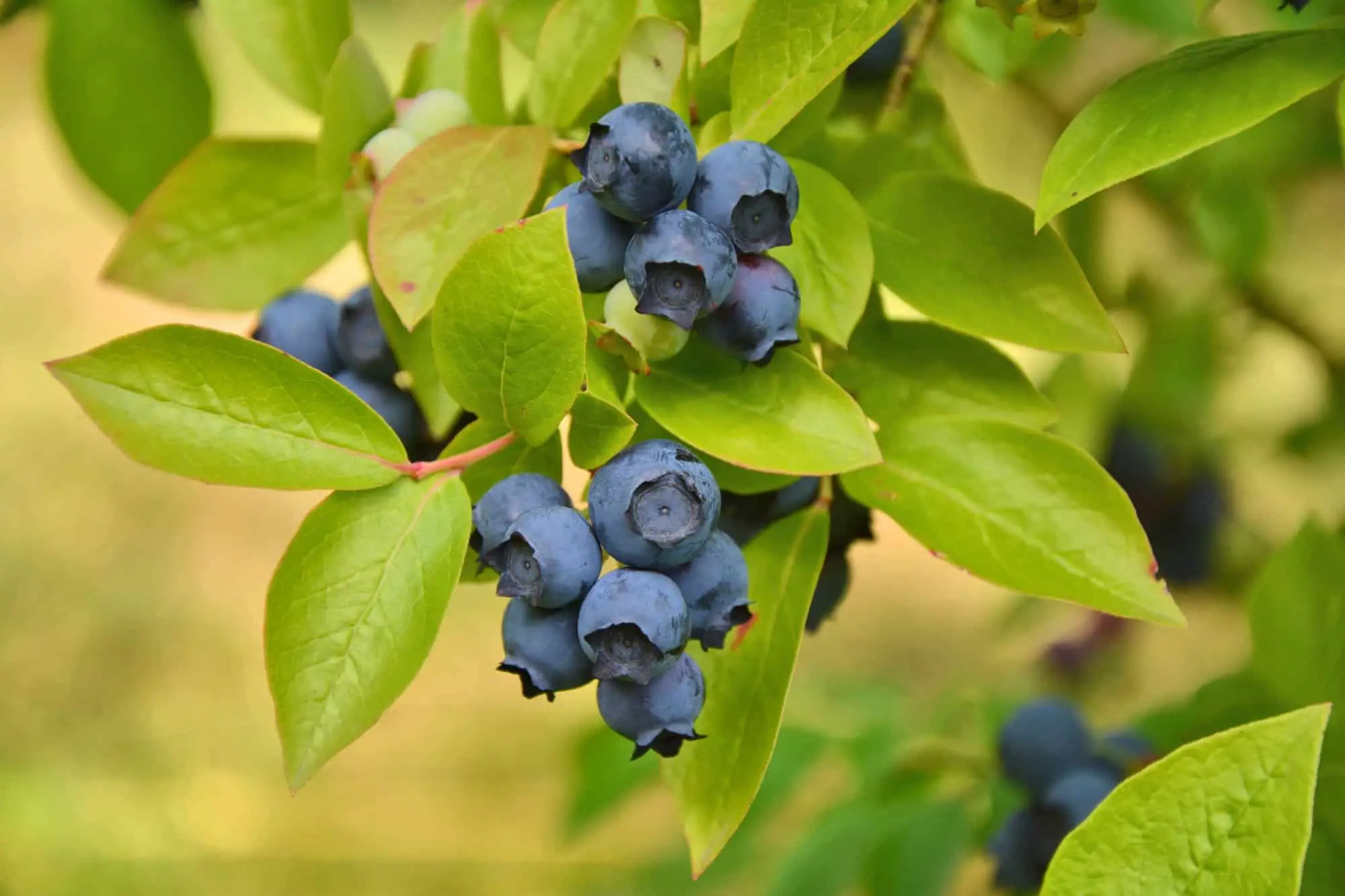
Could There be Too Many Blueberries for a Parrot?
As with any fruit or berry, you should limit the number of blueberries. Even if your parrot really likes blueberries, you need to stop them in time.
First, an abundance of blueberries means an overload of carbohydrates, leading to excess weight and digestive problems. Secondly, a lot of blueberries means no place in the stomach for other foods. So your parrot will either eat too much or refuse other foods, which will lead to nutrient imbalances.
Thirdly, we will again talk about antioxidants, which protect the body from free radicals. It is definitely a great property of blueberries. However, too few free radicals and too many antioxidants are not good food either. The immune system of parrots requires a small amount of free radicals to function properly. Therefore, an excess of antioxidants can disrupt your bird’s immune system. I remind you that your bird’s diet should be harmonious and balanced.
Can Parrots Eat Elderberries? One Danger to Avoid
Are There any Pesticides in Blueberries?
Farmers often use pesticides to protect fruits from various pests and insects. However, these chemicals can be very dangerous and toxic to birds, including parrots. When birds accidentally consume pesticides in the wild, it has negative health consequences.
For pet birds, pesticides are not as dangerous because we usually wash fruits and berries. Are there pesticides in blueberries? Should you be worried about this?
Yes, of course, like all berries, blueberries can contain pesticides. But if large fruits can be thoroughly washed or peeled off, then the problem with blueberries is that they are very small. As a result, it is more difficult to remove pesticides from them. So how can you protect your parrot from pesticides in blueberries?
The easiest way out is to buy organic berries, and this applies not only to blueberries. The advantage of organic berries is that no chemical elements, including pesticides, are used in their cultivation. Therefore, these berries are safe for your parrot. If you are confused by the price of organic blueberries, which can be much higher than usual, buy such blueberries occasionally as a sweet treat.
How to Feed a Parrot with Blueberries without Mess?
If you are feeding your parrot with organic blueberries, you may not need to peel them. But you still need to wash organic berries because you never know what gets on the peel during transportation and storage.
Do I need to Chop Blueberries for My Parrot?
Blueberries are small berries, so you can feed them whole to your parrot without chopping. Even the smallest parrots can eat these berries whole. However, if you are worried that your little parrot might choke, you can cut the berries in half.
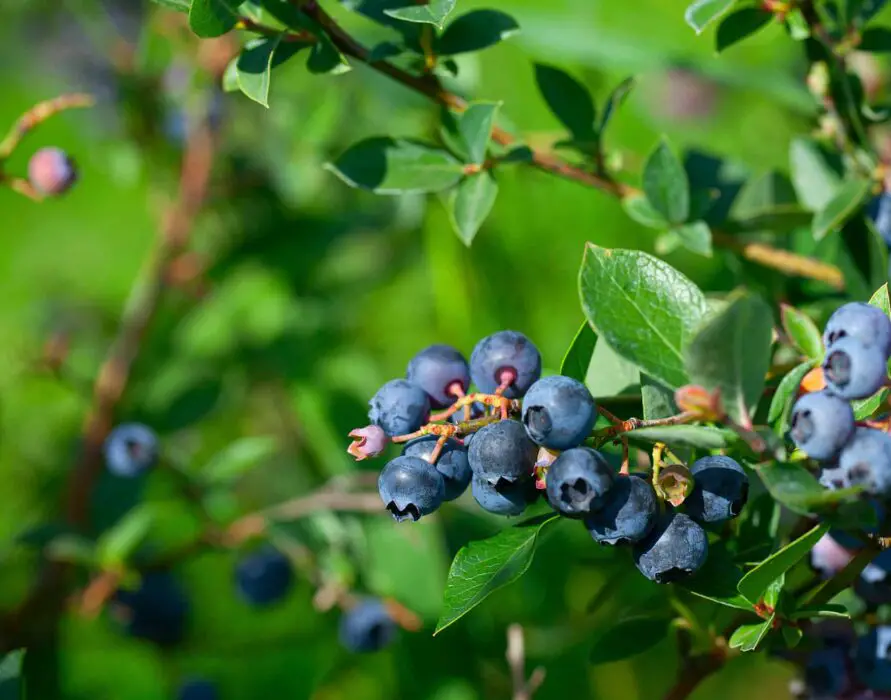
So What about Mess?
Parrots always eat pretty messily, and blueberries are no exception. They just like to eat this way, and you should consider this when feeding your pet. Just be prepared for a mess when feeding your parrot with blueberries. Feed your parrot blueberries in a separate area if you want to keep your furniture or clothing free from mess.
If you need to feed your parrot and keep it clean, you still need to cut the blueberries into pieces. Of course, this won’t eliminate the mess entirely, but it will help you reduce it significantly.
Are Cockatiels Messy? Cleaning Tips
Conclusion
So, summing up, I can say that blueberries are absolutely safe and, moreover, very useful for parrots. You need to make sure your bird is not eating too much and that you are giving them pesticide-free organic blueberries.
You can feed them with whole berries or cut them into pieces to avoid a big mess. However, blueberries will give your parrot a lot of fun and health benefits anyway.

